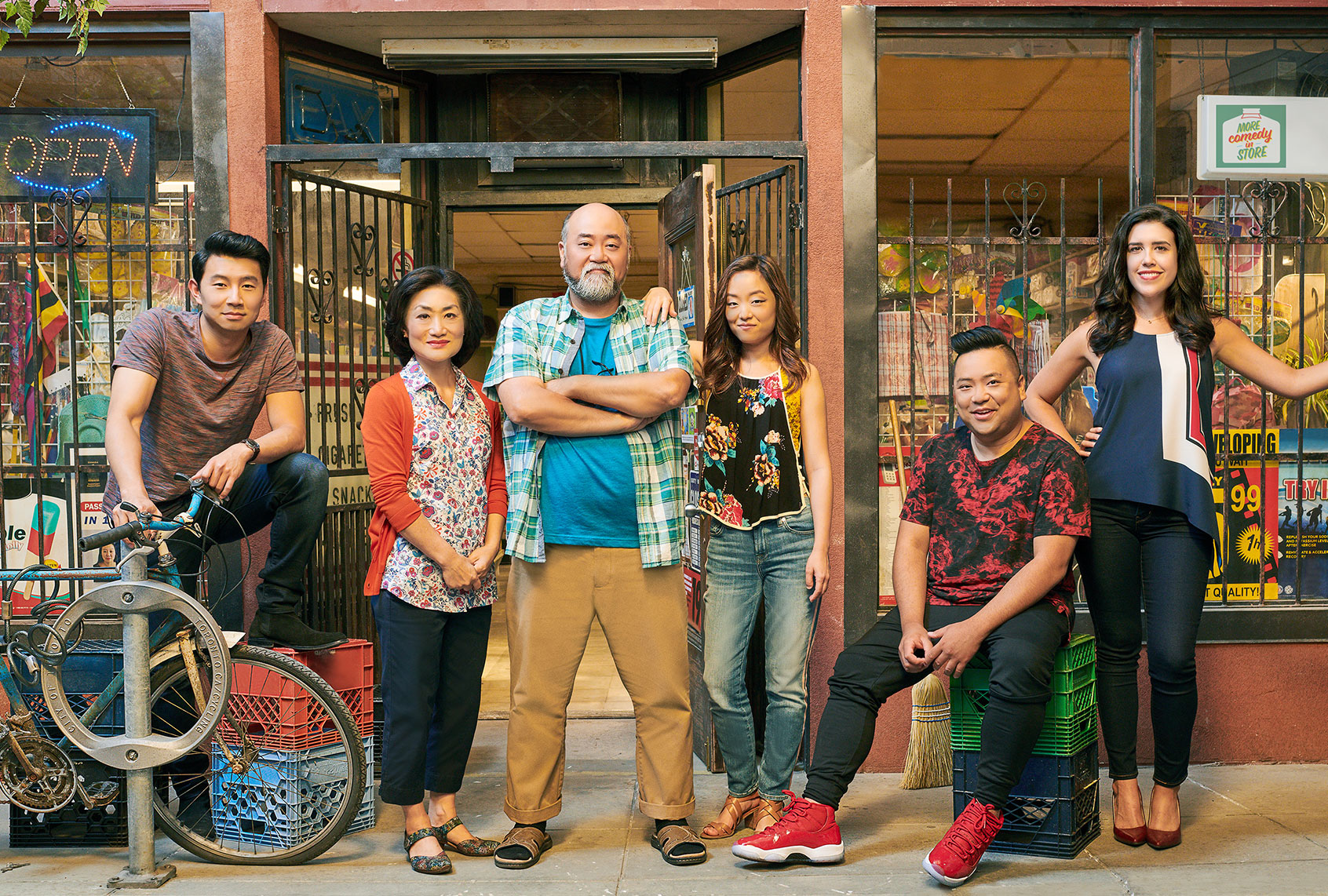In a disappointing twist following positive reviews for the fifth and final season of beloved comedy “Kim’s Convenience,” two of its lead Asian Canadian stars have since spoken out about racism and problems with off-screen lack of representation.
“Kim’s Convenience,” created by Ins Choi and Kevin White and originally based on a play, follows the story of a Korean Canadian family that runs a convenience store, and explores the hilarious, relatable and at times poignant pieces of their everyday life. The New York Times has called the show “quietly revolutionary” for its lack of explanation for certain aspects of Korean culture, thus catering specifically to Korean and Asian audiences.
That’s why recent revelations by two of the show’s lead stars of Asian descent reveal an important truth: representation isn’t just about what we see onscreen — it must also include what takes place off-screen, and who occupies seats of decision-making power.
In a lengthy Facebook post, Simu Liu, who plays eldest son Jung Kim on “Kim’s Convenience,” detailed examples of racism that included racist storylines, “overwhelmingly white” writers and producers, a lack of opportunity for the show’s Asian actors to grow or influence and shape the show’s direction, and “horsepoop” pay for the predominantly Asian actors compared with the cast of fellow CBC show “Schitt’s Creek,” among other complaints. Liu also noted how, upon the show’s ending, a spinoff show was offered to its sole white actor, rather than any of the other Asian cast members.
“Many of us in the cast were trained screenwriters with thoughts and ideas that only grew more seasoned with time,” Liu wrote. “But those doors were never opened to us in any meaningful way.”
Liu’s costar, Jean Yoon, who played Liu’s mother on the show, also spoke out this week, writing on Twitter that scripts for the fifth season included “overtly racist” storylines. Like Liu, Yoon also noted how “Kim’s Convenience” co-creator Choi had an increasingly “diminished presence on set” as the show progressed, while White stayed on as showrunner.
Yoon also wrote in a tweet replying to a since-deleted tweet criticizing Liu’s Facebook post, “the lack of Asian female, especially Korean writers in the writers room of Kims made my life VERY DIFFICULT & the experience of working on the show painful.”
The cast members’ revelations about how lack of behind-the-scenes representation or meaningful support for its Asian cast come at a time of growing dialogue about anti-Asian racism and violence in society. Yet sadly, their experience is universal among many shows and projects with diverse onscreen representation, without the off-screen diversity to back them up or provide growth opportunities and support to the people who are the faces of these projects.
A recent example of this unfortunate reality is the British spy thriller series “Killing Eve,” which received backlash last year for its predominantly white writers room, despite starring Korean Canadian Sandra Oh as one of its leads. Some have questioned the extent to which diversity on or off-screen can meaningfully “fix” racism on its own, especially following the Amazon series “Them,” an anthology that explores the expansive history of racial terrorism in the U.S. and consequently boasts a predominantly Black cast in its first season.
“Them” has been widely criticized for serving primarily as racist trauma or torture “porn” for the white gaze, and white audiences who can actually be shocked by such graphic and dehumanizing displays of racist brutality. Vulture called the show “pure degradation porn,” and wrote, “It is a stunning refutation to Hollywood’s belief that representation behind and in front of the camera will fix its inherent racism.”
Other shows with leads of color or diverse casts have straightforwardly mirrored the complaints put forward by the “Kim’s Convenience” stars. Just last month, Maureen Ryan reported for Salon that a white, male showrunner on “All Rise,” a popular drama about a Black woman judge, had “exhibited troubling behavior around race and gender, and effectively drove away staffers, including a large number of people of color,” prior to his firing. The show was recently canceled.
Surface-level representation for people of color and all marginalized people alone will never be enough, on its own, to meaningfully address systemic racism. We already knew that. Recent revelations from the “Kim’s Convenience” staff, as well as other disappointing case studies in asymmetrical on and off-screen representation, and stories of people of color but written for white people, add a new dimension to this issue. Representation is a layered, multifaceted issue — one that involves fundamental shifts and redistributions in power onscreen, behind the scenes, and perhaps even in who is centered as an audience.

